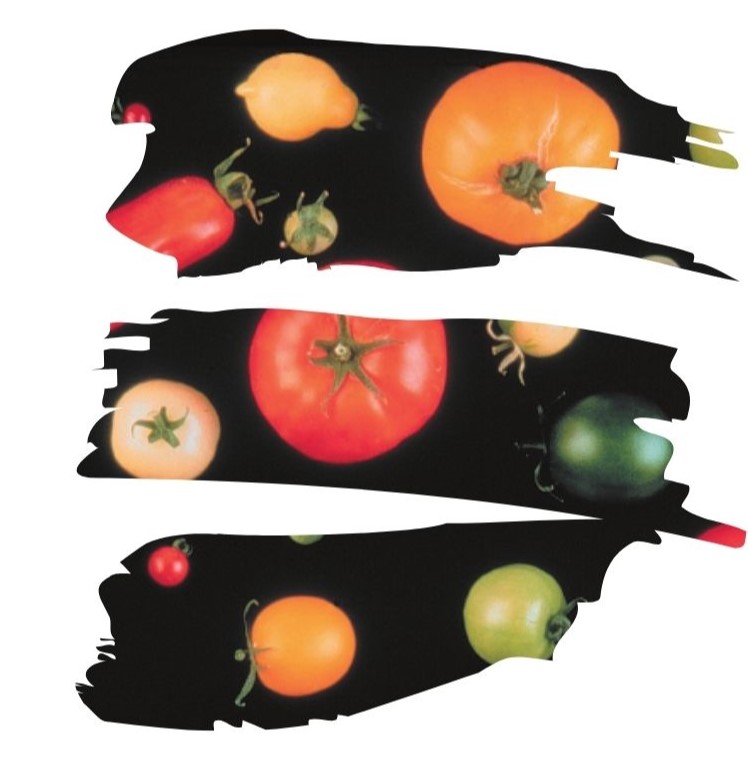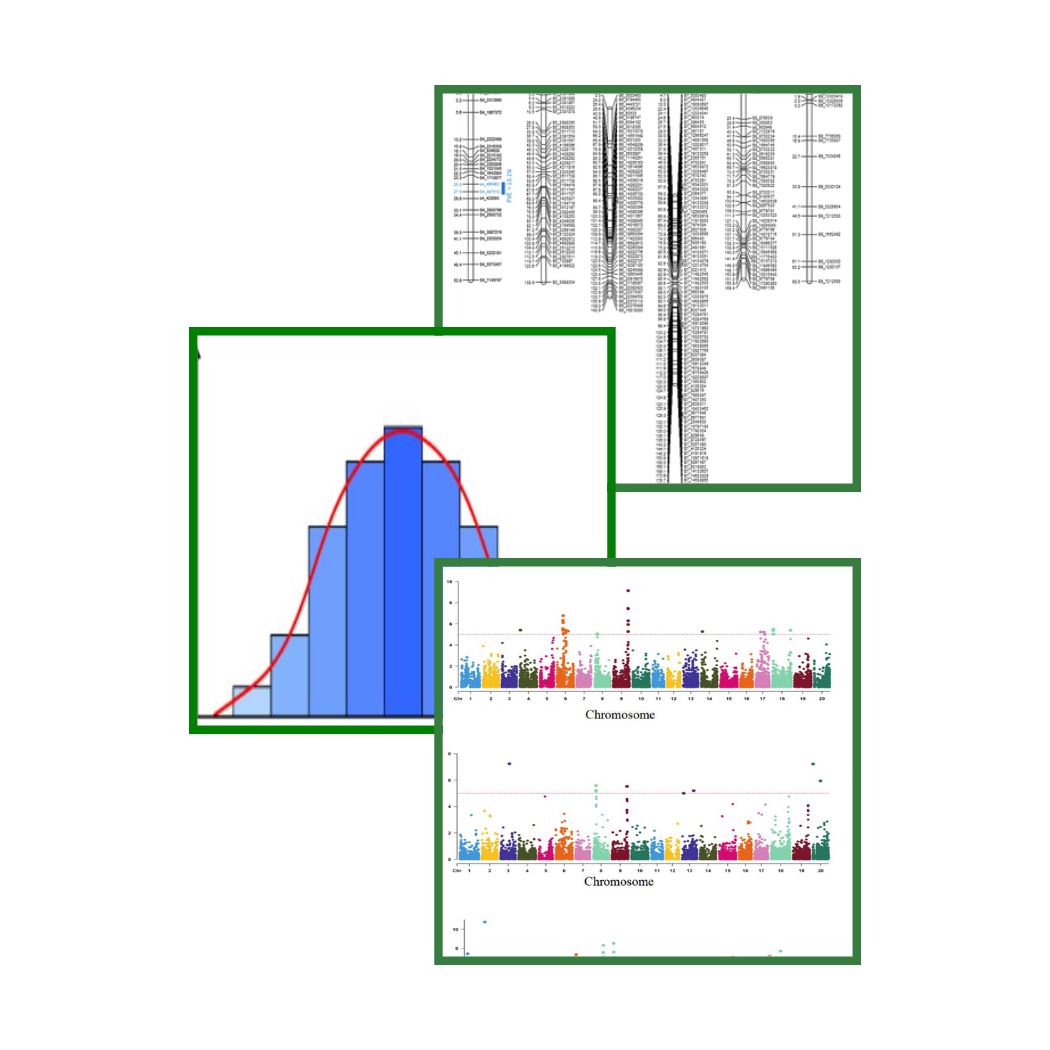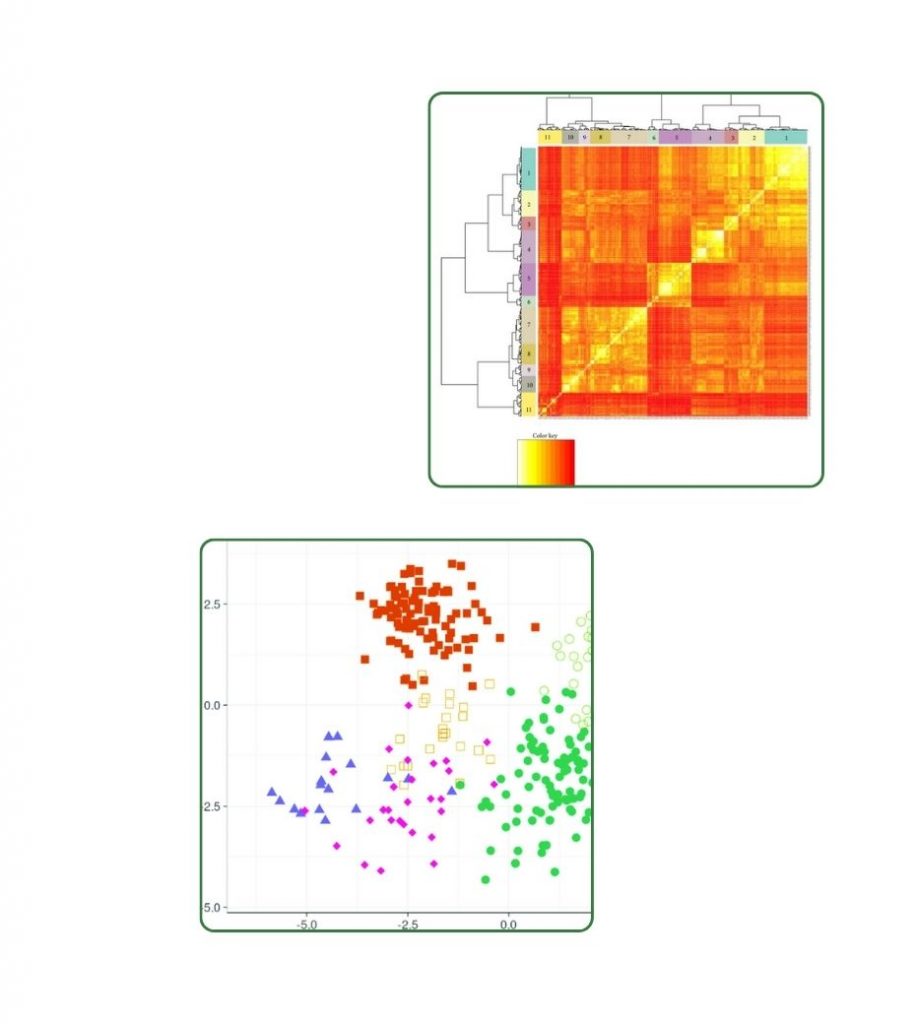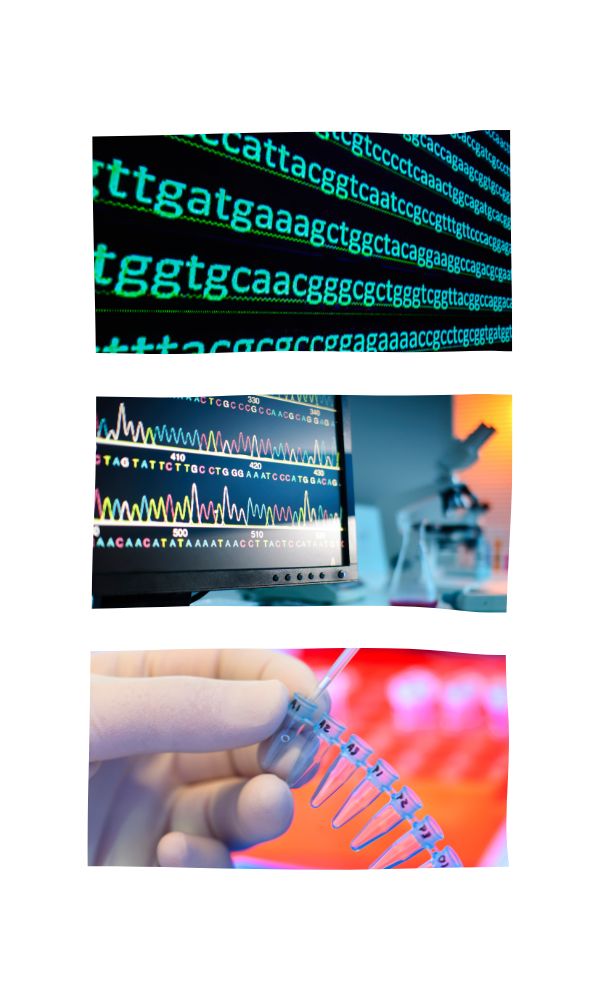
TRAINING
Do you want to elevate your breeding skills and unlock the potential of molecular tools for your breeding programs?
Our comprehensive training program is tailored to equip breeders with the knowledge and skills needed to to tackle real-world breeding challenges.
We put emphasis on the practical application of genetic theories and DNA technologies in plant breeding.

DISCOVER OUR TRAINING TOPICS
BASIC TRAIT GENETICS
QUANTITATIVE TRAIT GENETICS
DIVERSITY-ANALYSIS
DNA TECHNOLOGIES
BASIC TRAIT GENETICS
We unravel the fundamental principles governing inheritance and genetic variation. You may expect to learn about:
- Mendel’s laws of segregation and independent assortment,
- Diverse modes of gene action, including additive, dominance, and semi-dominance.
- Segregation ratio of phenotypes in the F2 (and further generations) of phenotypes controlled by monogenic or oligogenic traits.
- Genetic and phenotypic ratio in backcross breeding
Through real-world examples and even case studies from your own breeding programs, we learn to predict and interpret these ratios.

QUANTITATIVE TRAIT GENETICS
We unravel the fundamental principles of Quantitative Genetics governing the inheritance of traits influenced by multiple genes and environmental factors. You may expect to learn about :
- Heritability, which is the proportion of phenotypic variation in a population that is due to genetic factors. Estimating heritability helps to design effective breeeding programs.
- Heterosis (Hybrid Vigor), which refers to the phenomenon where hybrid offspring exhibit superior traits compared to their parents
- Mapping of QTLs (Quantitative Trait Loci, which are specific regions of the genome associated with quantitative traits. Markers linked to QTLs are useful for marker-assisted selection.
- Breeder’s Equation which quantifies the relationship between selection intensity, selection accuracy, genetic variation, and response to selection. This formula helps to optimize breeding programs.

DIVERSITY ANALYSIS
We unravel the fundamental principles of Genetic Diversity Analysis. You may expect to learn about:
- How to calculate scores of genetic diversity using data from molecular markers
- How to use visual tools like dendrograms and heat maps, that help to understand the population structure, the presence of subpopulations and the risk to lose genetic variants.
- How to perform cluster analysis of phenotypic and genotypic data and to compare the two sets of analysis.
- How to make informed decisions about the design of your breeding programs using the outcomes from the previous analysis.

DNA TECHNOLOGIES
We unravel the complexities of the fast- evolving field of DNA-based solutions for molecular breeding. You may expect to learn about:
- DNA sequencing techniques: we address their differences in cost, target length, precision and high-throughput.
- Molecular markers: we focus mainly on the Single Nucleotide Polymorphisms (SNPs)s and Simple Sequence Repeats (SSRs). We explore the different genotyping platforms and evaluate the best choices according to the needs of breeding programs.
- Gene Editing Technologies: we focus mainly on CRISPR-Cas Systems explaining the traits that can be targeted, which type of mutations can be generated, and the underlying technical, ethical and legal considerations.

